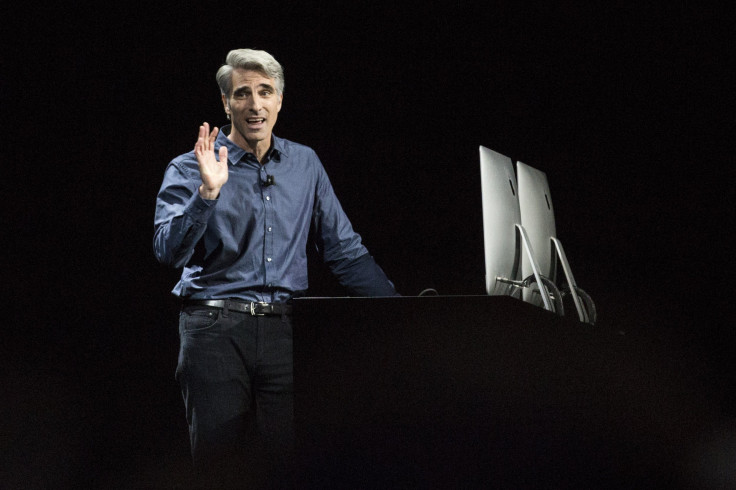Apple Inc. Doubles Down On Privacy Despite Artificial Intelligence Limitations

If Apple’s battle with the FBI in the case centered on the iPhone 5C of the San Bernardino shooter Syed Rizwan Farook showed the world anything, it was that the company is serious about protecting its customers’ privacy.
Consistent with engaging in a high-profile fight with the law enforcement agency over its insistence on keeping all its customers’ data on their iPads and iPhones, Apple has fallen behind the likes of Facebook, Google and Microsoft in leveraging the power of cloud computing to launch more advanced artificial intelligence (AI) features in operating systems and applications.
Apple doubled down on that privacy stance Monday, even as the company revealed it was working on a new technology that would allow it to roll out more advanced AI features while keeping its customers’ data safe from prying eyes.
Called “differential privacy,” this technology enables both the anonymity of data and the spotting of trends, with one privacy expert describing it as “visionary.”
At the Apple Worldwide Developers Conference (WWDC) in San Francisco, the company showcased the latest versions of its desktop and mobile operating systems, as well as updates of its Apple TV and Apple Watch software. The firm not only opened its digital assistant Siri to third-party app developers but also made it available on desktop personal computers.
In addition, Apple announced a range of new features that attempt to automate some of its users’ everyday tasks. The company’s software will now automatically offer smart responses within messages based on what users have been talking about. In its Photos app, the firm will offer facial recognition, allowing it to automatically group photographs captured in the same location and showing the same people.
All this is being done without compromising users’ privacy, Craig Federighi, Apple’s senior vice president of software engineering, told those in the audience at the Bill Graham Civic Auditorium. “When it comes to performing analysis of your data, we’re doing it on your devices, keeping your personal data under your control,” Federighi said.
A problem for Apple is that Google just a month ago exhibited much more advanced AI features, including software that will communicate with users naturally, something Facebook is also rolling out to users. In addition, Google launched a smart assistant called Home that will compete with Amazon.com’s Echo as a way of naturally communicating with an AI-powered computer.
Amazon, Facebook and Google — as well as Microsoft with its Cortana — all leverage the ability to use cloud computing to deliver better results and improve over time, something Apple says it will not do.
Differential privacy “aims to provide means to maximize the accuracy of queries from statistical databases while minimizing the chances of identifying its records.” Basically, this is a way of allowing Apple to crowdsource learning without building user profiles of its customers.
To back Apple’s claims, the company invited Aaron Roth, an associate professor of computer and information science at the University of Pennsylvania who is a recognized expert in privacy research, to have a look at the firm’s work. He said, “Incorporating differential privacy broadly into Apple’s technology is visionary, and positions Apple as the clear privacy leader among technology companies today.”
However, there is some disagreement about that. Renowned cryptographer Matthew Green, an assistant professor of computer science at Johns Hopkins University, reacted to the announcement with this comment:
Ok seriously Apple. This is a joke, right? pic.twitter.com/yeZQble0B4
— Matthew Green (@matthew_d_green) June 13, 2016
Green added: “Most people go from theory to practice, then to widespread deployment. With differential privacy, it seems Apple cut out the middle step.”
It remains to be seen whether Apple can achieve results similar to those of Facebook and Google with its method of deploying AI, but in an increasingly competitive smartphone market — and one that is slowing quickly — Apple knows it needs to make AI work for its customers.
“The star of the show wasn’t a particular product,” said Jan Dawson, chief analyst at Jackdaw Research, “but Apple’s refutation of accusations that it can’t compete with Google and Facebook in artificial intelligence and deep learning.”
© Copyright IBTimes 2025. All rights reserved.






















